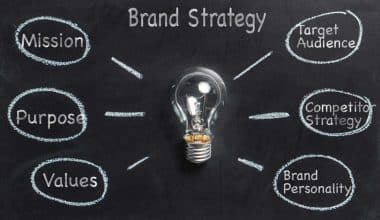A white-label product is a good or service that is made by one business (the producer), but is rebranded by another business (the marketer) to look like it was created by them. The term refers to the packaging’s white label, which can be equally customized with the marketer’s trade dress. White-label products are sold by merchants under their own trademarks, although they are actually made by a different company. Offering white-label goods eliminates the requirement for in-house product production. Also, white label suppliers frequently suggest items that are currently in demand, which you can brand to make your own, making it an excellent choice for those trying to capitalize on a trend. Consequently, this article provides white label products: what is it and how to do it
White-label manufacturing is frequently utilized for mass-produced, conventional commodities like compact disks, television, and web applications as well as household appliances, goods for everyday purposes, and technology. Some businesses also maintain a sub-brand for their products.
White Label Products
Before reaching consumers, white-label products are differentiated. New product names, packaging, and pricing must all be developed during this process. White-label products represent products that producers manufacture and sell without branding. Before reselling these products, the merchants who buy them trademark them. It appears as though retailers are the ones who create the things when they resale white-label goods.
Further details on white label partnerships include the following:
- The product’s attributes, elements, ingredients, and manufacturing specifics are under the manufacturer’s control.
- The retailer is in charge of the product’s branding and packaging design (which the manufacturer may provide as a service)
- The trademarks and brand identification connected to the white label products that the store buys are owned by the retailer.
- In order to create competition in the market, the producer may offer the same product to other stores while maintaining control over the production process.
Ideas For White Label Products
- Phone accessories
- Reusable tote bags
- Hair products
- Pet accessories
- T-shirts,Sweatshirts and Hoodies
- Detox products
- Shaving tools
- Reusable water bottles
- Laptop sleeves
- Supplements
- Fitness regalia
- Office supplies and stationeries
White Label Products Examples
In many different industries, white label brands like T-shirts, cosmetics, metal water bottles, tote bags are prevalent. White-label trademarks are used by bulk producers to market goods including LED lights, batteries, and mugs. There is even white-label software, which allows businesses to trademark a software program created by outside programmers. The retailer frequently tacks on its own logo at the last minute. Examples of white label products can include the following
- Coffee products
- Bags
- Glasses
- Trimmers
- Cosmetics
- Home interiors
- Personal care
- Fitness nutrition
Technology “White Labeling”
In the technological industry, where “operating system” is all the flavor, white labeling is also becoming increasingly prevalent. Under this white-label business model, technological organizations can outsource to a white-label software provider if they wish to offer a certain piece of software without incurring the cost of developing or coding it themselves. They can brand it with their name and copyrights and regard it as their own, but a different company actually owns the intellectual property (IP) of the software, and duplicate software can be sold to other businesses.
How To White-Label A Product
Anonymity is essential for white-labeling products. Customers who purchase the finished goods are unaware that white labeling businesses are the ones that manufacture them. Advantages of that? All of the credibility, loyalty, and trust go to your brand. The customer-facing elements of a tool, platform, app, or website will be changeable when you white label digital products so you may add your logo, style, or branding.
Furthermore, all communications between clients and the white-labeled extension of your brand will continue to be handled by your business and domain name. These specifics hold the secret to successful white labeling. Because your logo is on the white label products you are selling, if there is a problem, the buyer will hold you responsible. Consider the advantages and disadvantages of white labeling. Does one side outweigh the other? If so, your next move should be to compare white labeling firms and software providers, vetting each one until you find the best fit for your business. To distinguish between a good and bad spouse, use this guide.
How to successfully white label a product:
- Assess your company’s requirements honestly
- Use tools and tips like this one to balance the advantages and disadvantages.
- Examine white labeling businesses.
- Ask for a demonstration on white label products and proferrable solutions.
- Request demonstrations of the white label goods and services.
To summarize, white-label products are made by a provider and then resold to end users under the brand of another company. With their reseller associates, services can access a vast network infrastructure thanks to white labeling, and resellers can easily grow their product and service offerings without having to start from zero and create their own products and solutions.
White Label Products Manufacturer
White-label product manufacturers can be a great deal of a job to find. Depending on some factors, Private label manufacturers or suppliers can work interchangeably with white label products though the duo differ entirely in mode of functionality
You will need to find a reputable white-label product supplier to purchase your products from if you want to launch a white label e-commerce firm. Choosing a domestic or foreign manufacturer may be one of your initial priorities. Even though many businesses prefer to keep their operations in the United States, it’s frequently less expensive to source goods from other countries. Cost-effectiveness isn’t always preferable, though, as you also need to take into account delivery times, quality assurance, cultural variations that may affect how businesses operate, fiscal ramifications, import and export regulations, and legislation.
If you intend to procure either locally or globally, you must be certain that you can put your faith in the white-labeling product. Hence, you should carry out each of the following:
- To evaluate a product’s quality, ask for a sample
- Check the product’s integrity and reasonable lead times.
- Take production expenses as a whole
- Examine the procedures for handling product flaws and damaged goods.
Alibaba, Aliexpress, and Maker’s row are online websites you could review your searches for white label products manufacturers
What Does White Label Stand For?
The term “white label” refers to terminology derived from an image of a white-label on the packaging that can be filled with the marketer’s trade dress. The term “white-label”means when a corporation buys its goods and services from another corporation or brand and then rebrands/corporate it as its own.
A manufacturer uses white labeling to create a generic product that can be utilized by numerous shops. Even though the product is exactly the same as what other stores are selling, each merchant is then free to brand it as their own.
How Much Does White Labeling Cost?
The initial setup cost ranges from $2000 to $8000. Depending on the features a client may need and on unique requirements, it can be costlier. The dedicated data centers, financial analyst, administration, and other services are included in the $500-$1000/month maintenance charge. Depending on the customer’s needs for installation and assistance, the bill can be greater.
The monthly service prices are determined by a number of factors, including:
- Are you going to sell your own blueprints again?
- What characteristics will you incorporate into such plans?
- How may each of these features be set or constrained?
- The anticipated volume
It is quite important to note that only Premium or Enterprise subscribers can purchase White-label Software Licenses, which grant access to and authorization to modify the application coding. Only a few programs can use this license option. You do regularly have access to the most recently tested codebase as a Premium subscriber.
What Is Another Name For White Label?
A white label can also be a private label. Private-label products are made by one company but sold by another, just like white-label products. Private label, however, is the antithesis of white-label in terms of personalization. In credit institutions, the finished product is frequently altered before it is labeled.
Private-label refers to highly customized banking services and products in all areas. The architecture of your goods and services is fully under your control, in theory. Private-label gives biotech startups a chance to compete with better-known brands. For instance, a merchant may be able to offer an ensemble in a comparable style at a lesser cost than other well-known apparel manufacturers.
How To Start a White Label Business
Starting a white-label business is one that can be demanding and deserving of your patience and consistency. But rest assured, if you can overcome the hassles and brouhaha of setting a white label business, you will really benefit from the proceeds.
Starting a White Label Business In a Few Steps
You can get started with the following easy steps:
- Choose a product.
- Decide whether you will dropship, print on demand, or purchase inventory after finding a provider.
- Create a brand for your company and brand assets.
- Create a Shopify store, then configure your sales channels.
- Start your sales!
What Are The Benefits Of White Label?
White labels have proven to be beneficial over the years with a track record of indispensable attributes. Using white labels comes with many advantages which include mostly the following
- Without making additional investments, it can assist you in building your brand and providing clients with innovative solutions.
- If you need to quickly demonstrate an improved user-friendly solution, white labeling may be useful.
- The strategy may be useful if you wish to take over a new market.
- White labeling is the ideal choice for a startup or small business.
- You can use and brand a technology if company representatives have already used it and you want to avoid the risks of developing it yourself.
- Saves Time and money wastage
- Gives you focus on important deals
What Are The Disadvantages Of White Label?
- Selling goods made by a third party could mean less control over how they are made.
- Because the producer and distributor must both agree, changes to the product line could take longer.
- Due to expenses that must be paid to the producer, the profit margin on white-label products may be lower (than items manufactured by the distributor itself). Fees cover the right to market goods covered by intellectual property rights such as trademarks, patents, and copyright.
- Less control
- Potential liability
- Not suitable for small incorporations
- Potentially driving customers away
- Does not involve manufacturer trademark ownership
How Do I Sell My White Label Services?
An efficient strategy to offer services to target consumers is to employ a white-label service as the foundation of your product offering. When it relates to advertising firms, this enables businesses to increase their product offers while also having control over their own profit margins.
But, in order to sell your new white label services, start taking orders, or gather subscribers, you will need to develop a solid marketing plan. There are several things you can do to distinguish your company from the many other marketing businesses that promote online.
- Set your brand’s objectives.
- Rank your company.
- Establish a valuation strategic plan.
- Make use of branding to market your offerings.
- Link up with customers
- Think about advertisement
- Create a mailing list
Conclusion
A white-label product or service is one that is made by one firm (the producer) but is rebranded by another company (the marketer) to appear as though it were made by them. Mass production is frequently used to create white-label items. The term “white label” refers to a product’s label or package that is white and left blank so that the marketer can add its own brand. White-label goods have the main benefit of enabling businesses to join new markets rapidly and affordably without having to create their own items from scratch. Another benefit of white-label products is that they can be swiftly and readily tailored to a marketer’s particular requirements.






